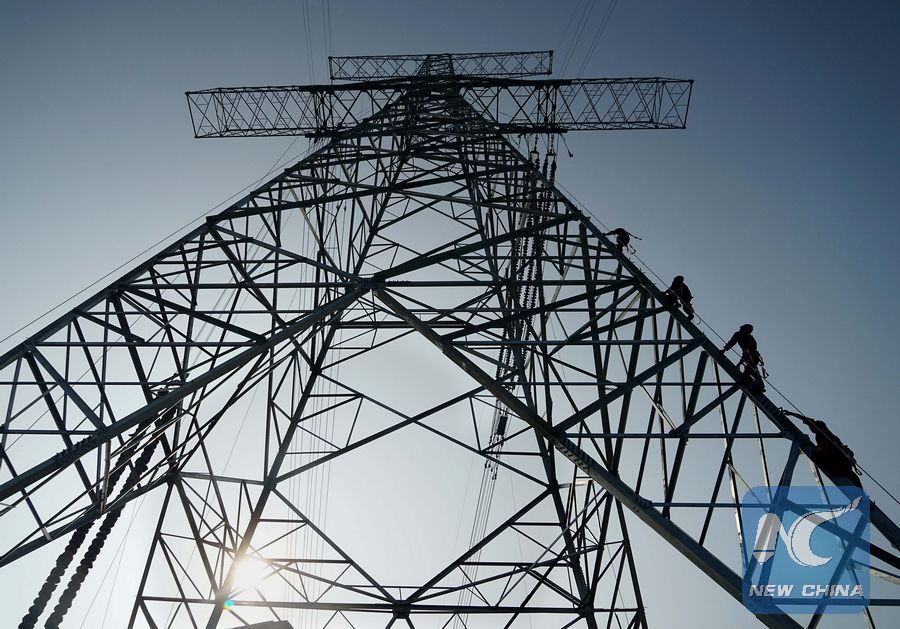
File photo. (Xinhua)
CAPE TOWN, Aug. 4 (Xinhua) -- South Africa's power system will take up to approximately 30 days to recover from the effects of an ongoing industrial action, authorities said on Friday.
During the 30-day recovery period, the risk of load shedding remains high, state-run electricity utility Eskom warned.
The generation and distribution of electricity in the country has been constrained since June when Eskom employees downed tools after cash-strapped Eskom rejected their demand for wage increases.
The industrial action has interrupted processes at a number of power stations, leading to sporadic blackouts over the past two months.
Electricity supply network has been affected by acts of sabotage and intimidation that characterize the current industrial action by members of trade unions, according to Eskom.
The South African Police Service (SAPS) has been mobilized to maintain order and to enable safe access to power stations.
The improvement in generation and operational performance can only increase and be achieved with the return of employees, Eskom said.
"The load shedding risk will increase over the weekend as we restore power plants and build up reserves for the coming week," said Eskom, which provides more than 95 percent of the electricity consumed in the country.
Eskom implements several stages of load shedding as a measure of last resort to protect the power system from a total collapse or blackout.
Stage 1 requires 1,000MW to be rotationally loadshed nation-wide, stage 2 requires 2,000MW, stage 3 requires 3,000MW and stage 4 calls for up to 4,000MW to be rotationally loadshed nationally at a given period.
The utility has sought the services of the Commission for Conciliation, Mediation and Arbitration (CCMA) to facilitate the engagement between Eskom and union leaders to resolve the impasse.
Trade unions will formally sign an agreement to end the strike on August 8, after engaging their members, as discussed during the mediation process at the CCMA, according to Eskom.
The trade unions have committed to assist with normalizing the operations and dispatched a team to various sites, and most sites are returning to normality, said Eskom.
"Employees are encouraged to report back to work," the utility said.
South Africa has suffered from power insufficiency since 2008. Between 2014 and 2015, frequent blackouts gripped the country, seriously affecting economic activities and people's lives, and causing billions of dollars in economic losses.

